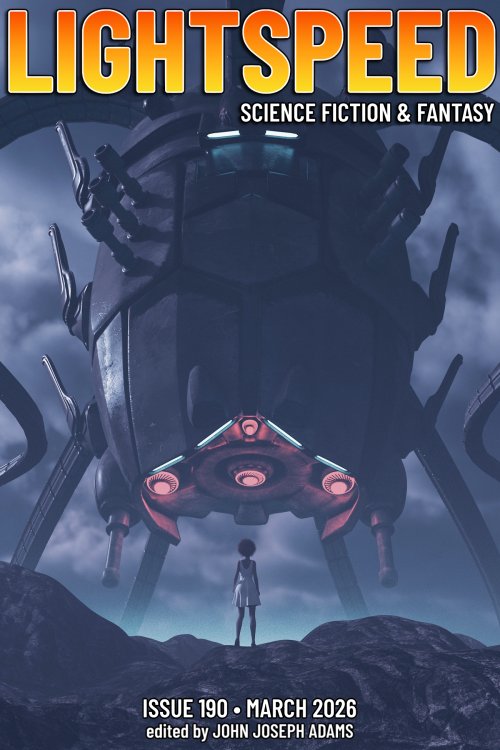One of the major themes I encountered in “Last Meal Aboard the Awassa” was this idea of relationships at the end of the world. How did the overall crisis of the Awassa being destroyed influence the development of Gardener and Cook’s relationship?
Gardener and Cook’s relationship is very stable at this point in their lives, so this final day isn’t all that different from the others that came before. The harvest is bigger; the meal is too. But they work in tandem, as always, and the way they feel about and treat one another doesn’t change. If anything, the destruction of the Awassa preserves their relationship and holds it forever in this moment where, yes, there is fear and sadness, but there is also more than enough love gathered between them to chase it away, like firewood stacked for winter.
The Awassa is a community-driven ship, it seems. Everyone feels like a family. And they are brought together at the end of it all to do one of the most family-oriented things: eat a meal together. What are your thoughts on communities as family, and how did they influence your writing in this story?
I suppose communities and families don’t feel distinct in my mind because I see a lot of their roles, in an ideal world, as similar. We’re supposed to take care of one another, empower and uplift one another, hold one another accountable, show interest in one another’s histories, present experiences and dreams for the future, keep the home we share safe and clean for all of us who live here now and will live here in the future. And my definition of home is broad. It includes my block, my county, my continent, and beyond. We Earthlings share a home, even if it is planet sized. To me, that makes every human part of my community and my family.
Gardener and I are pretty alike in that way.
She loves broadly. She isn’t as gregarious or as warm as Cook, who builds deep connections one-on-one; but while everyone else is saying goodbye to loved ones, Gardener is reaching out to the universe and putting on a brave face, wanting to encourage future explorers.
Did you run into any challenges when writing this?
For the most part, I had fun writing this one. It began life as a very different, more somber piece with an all-human crew, but I decided to take just the premise—lovers aboard a doomed ship—and aim for a hopeful tone. The result was something of an homage to the found families in my favorite science fiction franchises like Star Trek and The Expanse.
Writing this wrung me out at times, though. It’s not the focus of the story, but like anyone facing a sudden but sort of slow death, Gardener is terrified. And to have her partner facing the same fate by her side is devastating. I get deep in my character’s heads, and this one hit hard as someone who struggles with anxiety about death and who’s been married to my ‘Cook’ almost a decade.
I was on the Awassa with my spouse and we were both going to die and we didn’t have the power to stop it. We could only hold each other . . . until we couldn’t.
Haha. And now I’m crying again. Definitely challenging to write with things all blurry like this.
What’s next for you? Do you have anything coming out soon you’d like to talk about?
Right now, I’m putting together my first collection. I’m relatively new to the speculative short fiction industry but I fell fast and hard. I’ve managed to build a cohesive body of work that I’m proud of. There’s a good amount of bittersweet science fiction like “Last Meal Aboard the Awassa” and several pieces of Black fabulism like “Early Evening Soul,” first published in Speculative City.
For my forthcoming work, you can grab Solarpunk Magazine on July 15th to read “Let Heavens Be Joined as Worlds Are Not”, which explores a writer struggling with the death of his mentor and a mountain of writer’s block as he faces the impossibility of finishing her famous fantasy series. And in the July issue of Flash Fiction Online, you’ll find a reprint of “The Sacred, The Sacrificial,” a story about the ecological devastation brought about by colonialism and the burdens put on the ones chosen to reverse it.
Enjoyed this article? Consider supporting us via one of the following methods:










